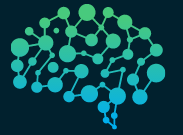AI(ARTIFICIAL INTELLIGENCE)
In the ever-evolving landscape of technological advancements, the rise of Artificial Intelligence (AI) has been nothing short of revolutionary. Satya Nadella, CEO of Microsoft, once remarked that AI is poised to be the next ‘tidal wave’ following the internet’s transformative impact. This proclamation is not merely a prediction; it’s a recognition of the potential AI holds to reshape industries, societies, and economies on a global scale. In this article, we delve into the profound significance of AI as the impending ‘tidal wave,’ its implications across various sectors, and how stakeholders can harness its power for a brighter future.
Unleashing the AI Revolution
The dawn of the internet era paved the way for unprecedented connectivity and information sharing. However, the exponential growth of data created challenges in understanding and deriving insights from this vast expanse. This is where AI steps in as the harbinger of the next technological revolution. Combining machine learning, natural language processing, and neural networks, AI empowers machines to comprehend, learn, and adapt in ways that were previously thought to be exclusive to humans.
Must Read……
Automating Website Change Notifications via Email using Python
The Transformative Power of AI
Revolutionizing Industries
AI’s transformative potential is reflected in its impact across industries. In healthcare, AI-driven diagnostic tools can analyze medical images with remarkable accuracy, leading to earlier disease detection and personalized treatment plans. Manufacturing industries are experiencing increased efficiency and reduced downtime through predictive maintenance enabled by AI algorithms. Moreover, AI-powered virtual assistants are revolutionizing customer service, enhancing user experiences, and driving sales in the retail sector.
Shaping the Workforce
As AI automates routine tasks, it reshapes the workforce landscape. While concerns about job displacement exist, the emphasis should shift towards upskilling and reskilling the workforce to adapt to the new demands of the digital age. AI’s role should be seen as augmenting human capabilities rather than replacing them. The fusion of human creativity, empathy, and critical thinking with AI’s computational prowess opens up novel opportunities for innovation.
The AI Ecosystem
Data: The Fuel of AI
At the heart of AI lies data. The quality and quantity of data available directly influence the effectiveness of AI systems. Organizations must prioritize data collection, storage, and security to ensure accurate insights and avoid biases. Ethical considerations also come into play, as responsible AI deployment requires a commitment to transparency and fairness.
Infrastructure and Computing Power
AI’s potential can only be realized with robust computing infrastructure. High-performance GPUs and cloud-based solutions enable the complex calculations necessary for AI models. Advances in quantum computing hold the promise of exponentially accelerating AI capabilities, unlocking new frontiers in problem-solving and optimization.
Navigating Challenges and Ethical Considerations
Ethical AI
The AI ‘tidal wave’ brings with it ethical dilemmas. Bias in AI algorithms, unintentional propagation of stereotypes, and invasions of privacy are real concerns. Developers must adopt ethical frameworks that prioritize fairness, accountability, and transparency. Collaboration between technologists, ethicists, and policymakers is crucial to establish guidelines that mitigate these challenges.
Future of Work
The changing nature of work due to AI requires forward-thinking policies. Governments and educational institutions must collaborate to design adaptable education systems that foster skills relevant to the AI-driven landscape. Lifelong learning initiatives can empower individuals to remain competitive in the job market and ensure a smooth transition through economic shifts.
Read also…..
The Evolution of Artificial Intelligence: Complete History
Embracing AI’s Potential
Investment in Research and Development
To harness AI’s full potential, sustained investment in research and development is imperative. Public and private sectors should collaborate to drive innovation, fund groundbreaking research, and explore uncharted territories. AI’s impact on diverse fields, from climate modeling to drug discovery, underscores the need for interdisciplinary collaboration.
Fostering AI Literacy
Promoting AI literacy is key to ensuring the broader public understands its benefits and risks. Educational initiatives, workshops, and public forums can help dispel misconceptions and empower individuals to make informed decisions about AI adoption.
Navigating the Tidal Wave
In the journey from the internet era to the impending AI ‘tidal wave,’ society stands on the cusp of unparalleled transformation. Just as the internet revolutionized communication and information sharing, AI is poised to reshape industries, redefine work, and challenge us to address ethical considerations. To harness this force for good, stakeholders across sectors must collaborate, invest, and educate. Satya Nadella’s analogy of AI as the next ‘tidal wave’ isn’t just a vision; it’s a call to action for a future where human potential and AI capabilities merge to usher in an era of limitless possibilities.
